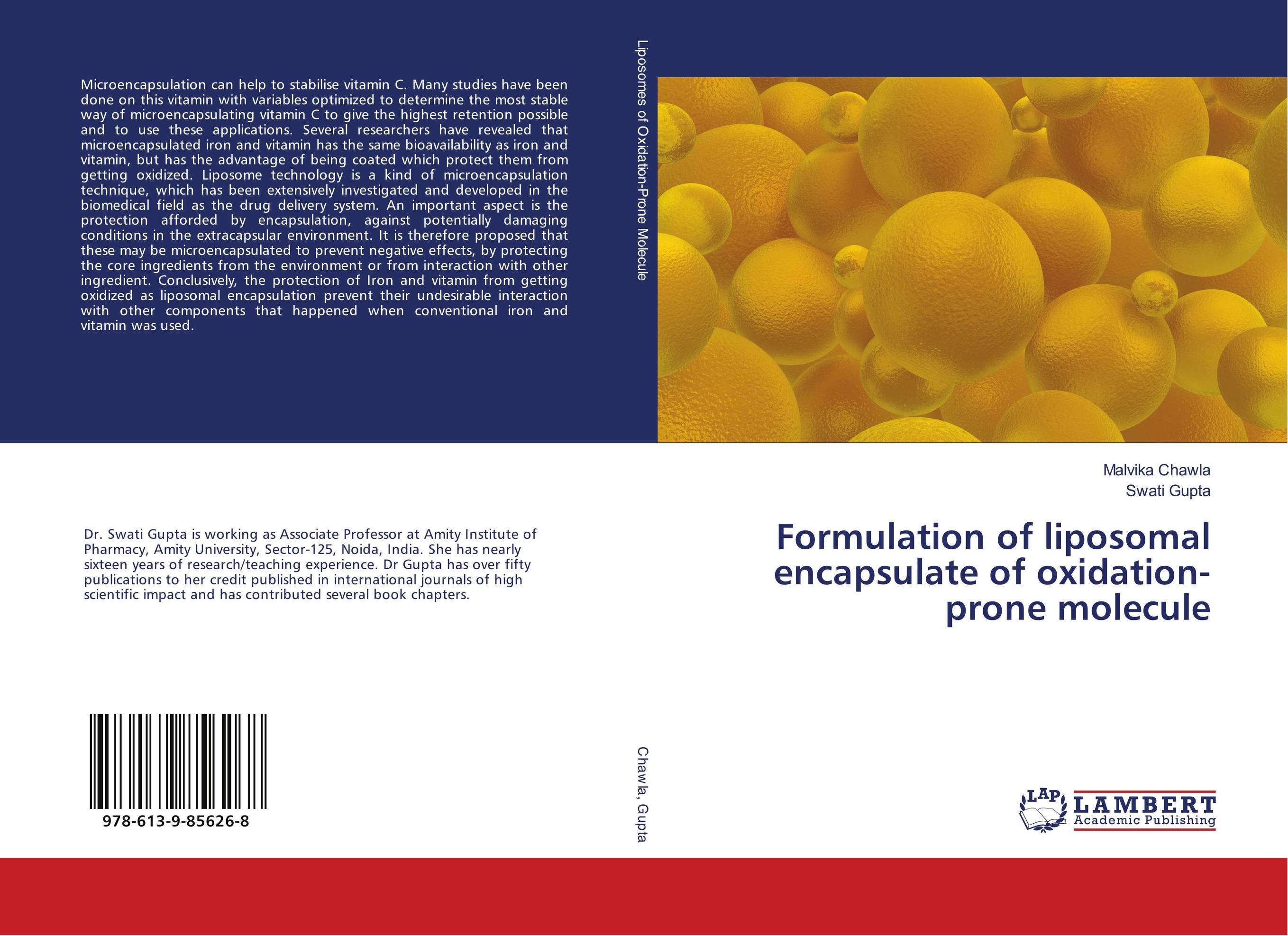| Поиск по каталогу |
|
(строгое соответствие)
|
- Профессиональная
- Научно-популярная
- Художественная
- Публицистика
- Детская
- Искусство
- Хобби, семья, дом
- Спорт
- Путеводители
- Блокноты, тетради, открытки
Formulation of liposomal encapsulate of oxidation-prone molecule.

В наличии
| Местонахождение: Алматы | Состояние экземпляра: новый |

Бумажная
версия
версия
Автор: Malvika Chawla and Swati Gupta
ISBN: 9786139856268
Год издания: 2018
Формат книги: 60×90/16 (145×215 мм)
Количество страниц: 108
Издательство: LAP LAMBERT Academic Publishing
Цена: 29753 тг
Положить в корзину
| Способы доставки в город Алматы * комплектация (срок до отгрузки) не более 2 рабочих дней |
| Самовывоз из города Алматы (пункты самовывоза партнёра CDEK) |
| Курьерская доставка CDEK из города Москва |
| Доставка Почтой России из города Москва |
Аннотация: Microencapsulation can help to stabilise vitamin C. Many studies have been done on this vitamin with variables optimized to determine the most stable way of microencapsulating vitamin C to give the highest retention possible and to use these applications. Several researchers have revealed that microencapsulated iron and vitamin has the same bioavailability as iron and vitamin, but has the advantage of being coated which protect them from getting oxidized. Liposome technology is a kind of microencapsulation technique, which has been extensively investigated and developed in the biomedical field as the drug delivery system. An important aspect is the protection afforded by encapsulation, against potentially damaging conditions in the extracapsular environment. It is therefore proposed that these may be microencapsulated to prevent negative effects, by protecting the core ingredients from the environment or from interaction with other ingredient. Conclusively, the protection of Iron and vitamin from getting oxidized as liposomal encapsulation prevent their undesirable interaction with other components that happened when conventional iron and vitamin was used.
Ключевые слова: Drug Delivery System, Liposomes



